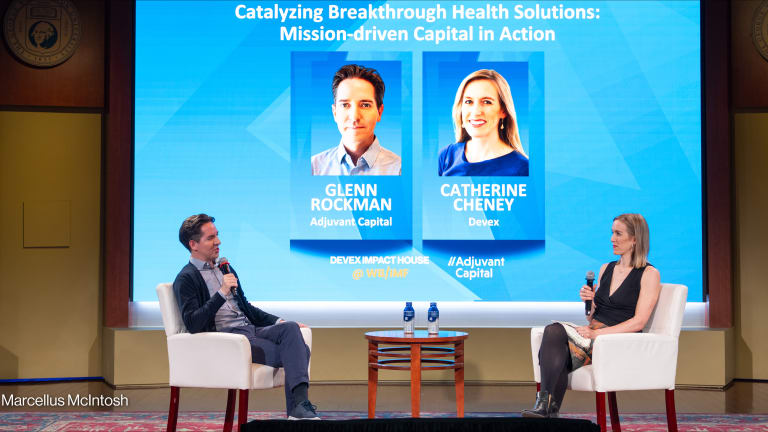How to win funding from impact investors
Having a proven track record or a demonstrable business model isn’t enough to win the trust of impact investors. So what else should social enterprises keep in mind to gain funding from these firms? We spoke to a few private equity firms and venture philanthropists.
Battered by the global financial crisis, global investment firms across the board have come to the realization that they need to reinvent themselves and re-evaluate their corporate values in order to survive over the next decade. While profit remains a major consideration for these companies, many of them now recognize that investing in a more socially responsible manner produces reputational and operational benefits — which, over the long run, could help protect their bottom lines. This type of socially responsible investing is referred to by different terms — impact investing, shared value, inclusive capitalism and stakeholder capitalism are just a few. But what it essentially means is that financial firms are increasingly asking themselves who is really benefiting from their investments and what impact those investments are making on the communities they are working in. “The private equity industry can be a force for good and a force for development,” Frederic Sicre, managing director of global growth markets investor The Abraaj Group, told Devex. Abraaj has $7.5 billion of assets under management and has investments in more than 150 companies in Asia, Africa, Latin America and the Middle East. Private equity firms — and most other types of impact investors — are often not interested in seeding startups, however. Because these firms remain profit-oriented, the majority prefer to invest in social enterprises that either have a proven track record or a demonstrable business model. The fresh infusion of capital is meant to support scaling up their business or build capacity. But having a proven track record or a demonstrable business model isn’t enough to win the trust of impact investors. So what else should social enterprises keep in mind to gain funding from these firms? We spoke to a few private equity firms and venture philanthropists, who shared some tips below. Have high-quality people in your team All three impact investors Devex spoke to were unanimous in saying it is important that they trust the people they will be investing in. Proving that the social enterprise will be run by people with integrity, experience and capability is a surefire way to earning that trust. Yoshi Tabuchi, accelerator manager for the Philippines at Zurich-based LGT Venture Philanthropy, said the firm places great emphasis on the social enterprise’s management team. What is their background? Their experience? Capabilities? LGT looks at the character of the social enterprise’s executives as well. “One of the criteria that we look at when we’re looking at a company is the quality of the entrepreneur,” Sicre said at a private sector equity panel at the recently concluded Impact Forum Asia 2014 conference in Singapore. “If the entrepreneur has the desire and the ambition to put in place best global practices — whether it’s in terms of governance, in terms of environmental approach, in terms of social standards — that is [when we’ll say] we’re going to partner with you and we’re going to help take you to the next level.” Ambition is important for Leapfrog Investments as well. Michael Fernandes, a partner at the impact investment and private equity firm who co-leads the investment team in South and Southeast Asia, added that the social enterprises also need to have high-quality people in their team. Leapfrog specializes in microinsurance, a subsector of the highly regulated financial services space, where knowledge and understanding of local regulations are essential. Have a growth plan One of the factors LGT looks for when reviewing a social enterprise’s business plan is whether there is a concrete strategy to increase not just financial returns but also social impact. But according to Tabuchi, not all of the social enterprises that approach LGT have outlined how they plan to use the venture philanthropy’s money to scale up. “When they come and they don’t have these plans, we usually tell them, we can of course support, if you need support, but you have to come up with these plans to talk to us,” Tabuchi said. In addition, social enterprises need to be clear about their growth projections and the impact they want to make. This can then help them devise a business plan that will have clear and concrete strategies for growth. “When there is complete clarity on the metrics which answer both the business and the impact side of the equation, then you can think through your business model in that manner, that’s when you really create the DNA for scalability,” Sandeep Farias, co-founder and managing director of impact investor Elevar Equity, said at Impact Forum Asia’s private equity panel. Find your niche There are quite a number of impact investors that prefer to focus on select sectors. Leapfrog, for instance, only supports social enterprises that aim to deliver microinsurance products to the core of the pyramid. Unlike the bottom of the pyramid, people in the core often comprise the bulk of the pyramid. They are not the destitute, but they are one emergency away from falling back into poverty. LGT, on the other hand, concentrates support on five sectors: education, health, agriculture, information and communications technology, and renewable energy. But even sector-agnostic impact investors have areas they will absolutely not fund. Abraaj, for instance, has deployed considerable capital across sectors that range from education and health care to fast-moving consumer goods and logistics. “Sectors that you will not see us really investing in [are] purely the technology sector as well as mobile telephony,” Sicre told Devex. “We are a lot more bricks-and-mortar investor than we are on the tech space. We understand technology in terms of how it can help a business grow, but we’re not experts in the development of technology itself.” Once a social enterprise has decided on its niche, it will be easier to target an impact investor to submit proposals to, and the likelihood of winning funding increases as well. Find the right match Apart from finding a sector of focus, social enterprises should target the right investor for the stage they are in. If the social enterprise is just starting and has no track record to speak of, it should not approach impact investors and instead focus fundraising efforts on foundations, incubators and donor agencies. Even if the social enterprise is ready to scale, not all impact investors are the right match for them. Abraaj, for instance, has to see that “you are in a segment of the market that is not going to be subjected to volatility and that has a long-term propensity for sustainable growth.” In addition, Abraaj would only invest in a company whose business it can help grow. “If you want to grow in the United States, we’re not the business to talk to,” Sicre noted. Moreover, Abraaj does not want to be just passive partners and would only work with companies that would allow the firm to sit on their board and help them strategize their expansion. In Leapfrog’s case, meanwhile, distribution is important. A social enterprise seeking to gain funding from the firm would therefore have to not just focus on microinsurance but also prove that it has established distribution channels that can be leveraged. To find the right impact investor for their business, social enterprises could join networks — such as the Global Impact Investing Network, Impact Investment Exchange and Asian Venture Philanthropy Network — that were created to create an ecosystem for impact investing. This story is part of a series on impact investing. For more, check out our Storify page on “Impact Investing 2.0: The evolving social finance landscape” and tweet @DevexImpact using #impinv. Join Devex, the largest online community for international development, to network with peers, discover talent and forge new partnerships — it’s free. Then sign up for the Devex Impact newsletter to receive cutting-edge news and analysis every month on the intersection of business and development.
Battered by the global financial crisis, global investment firms across the board have come to the realization that they need to reinvent themselves and re-evaluate their corporate values in order to survive over the next decade. While profit remains a major consideration for these companies, many of them now recognize that investing in a more socially responsible manner produces reputational and operational benefits — which, over the long run, could help protect their bottom lines.
This type of socially responsible investing is referred to by different terms — impact investing, shared value, inclusive capitalism and stakeholder capitalism are just a few. But what it essentially means is that financial firms are increasingly asking themselves who is really benefiting from their investments and what impact those investments are making on the communities they are working in.
“The private equity industry can be a force for good and a force for development,” Frederic Sicre, managing director of global growth markets investor The Abraaj Group, told Devex. Abraaj has $7.5 billion of assets under management and has investments in more than 150 companies in Asia, Africa, Latin America and the Middle East.
This story is forDevex Promembers
Unlock this story now with a 15-day free trial of Devex Pro.
With a Devex Pro subscription you'll get access to deeper analysis and exclusive insights from our reporters and analysts.
Start my free trialRequest a group subscription Printing articles to share with others is a breach of our terms and conditions and copyright policy. Please use the sharing options on the left side of the article. Devex Pro members may share up to 10 articles per month using the Pro share tool ( ).
As former Devex editor for business insight, Aimee created and managed multimedia content and cutting-edge analysis for executives in international development.








